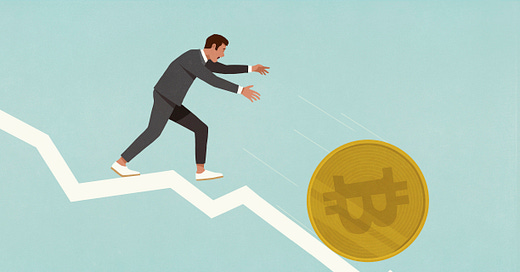NFTs and the Race to Remake Hollywood
Is Bored Apes the new Disney?! Insiders and the exiled (Roy Price, Ryan Kavanaugh!) on an industry's FOMO catching fire
A botched lease for a soundstage in Burbank was Hollywood’s first known foray into blockchain technology. The year was 2013, and the soundstage on Flower Street had been left unoccupied by a recently canceled web series. An assistant who managed the stage, Leo Matchett, pitched a novel idea to his boss, writer/director Roman Coppola, the now 56-year old son of the dynastic Hollywood family. Then 30, Matchett wanted to turn the soundstage into a Bitcoin mining operation. It didn’t take much to set up — a steady power source, a few computers and some specialized ASIC chips that you could order online. And it worked. Within months, a handful of Bitcoins were mined but the sky-high electricity costs forced Coppola to shut it down after a year.
Anyone who’s tried to explain cryptocurrencies and blockchain can appreciate how absolutely fringe this idea was at the time. “Everyone I talked to about it back then was like, ‘what the hell is that?’” says Matchett who, to this day, still marvels at how amenable the Coppolas were to the idea. At the time, he was a subscriber to the cypherpunks mailing list metzdowd.com. (In case you don’t know — and you probably don’t — “cypherpunks” are people advocating widespread use of strong cryptography and privacy-enhancing technologies as a route to social and political change.) That mailing list is where Satoshi Nakamoto — the pseudonymous creator of Bitcoin — laid out the philosophical framework of his soon-to-be famous cryptocurrency (or so the legend goes). Recall that in 2013, that same year, Netflix was roiling the industry and being pooh-poohed during its transition from a DVD by-mail company to a streaming service with a show called House of Cards. Bitcoin and blockchain? That was definitely not front booth conversation at The Grill.
Fast-forward nine years, and blockchain, NFTs and crypto have emerged as the new lingua franca not only of tech bros (only 14 percent of Americans, mostly young men, have bought or sold crypto), but also, suddenly, of an emerging segment of “regular” entertainment people (and yes, Hollywood bros too). For this story, I talked to executives, entrepreneurs, even some of the exiled, who are evangelizing the new technologies as a panacea for an industry’s suddenly urgent





